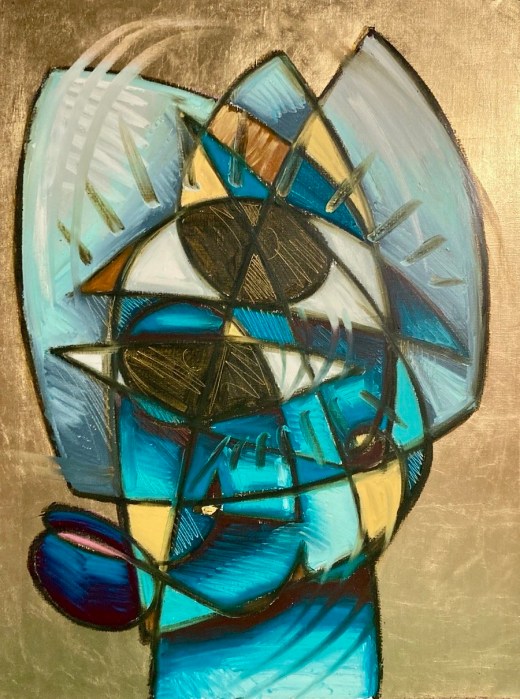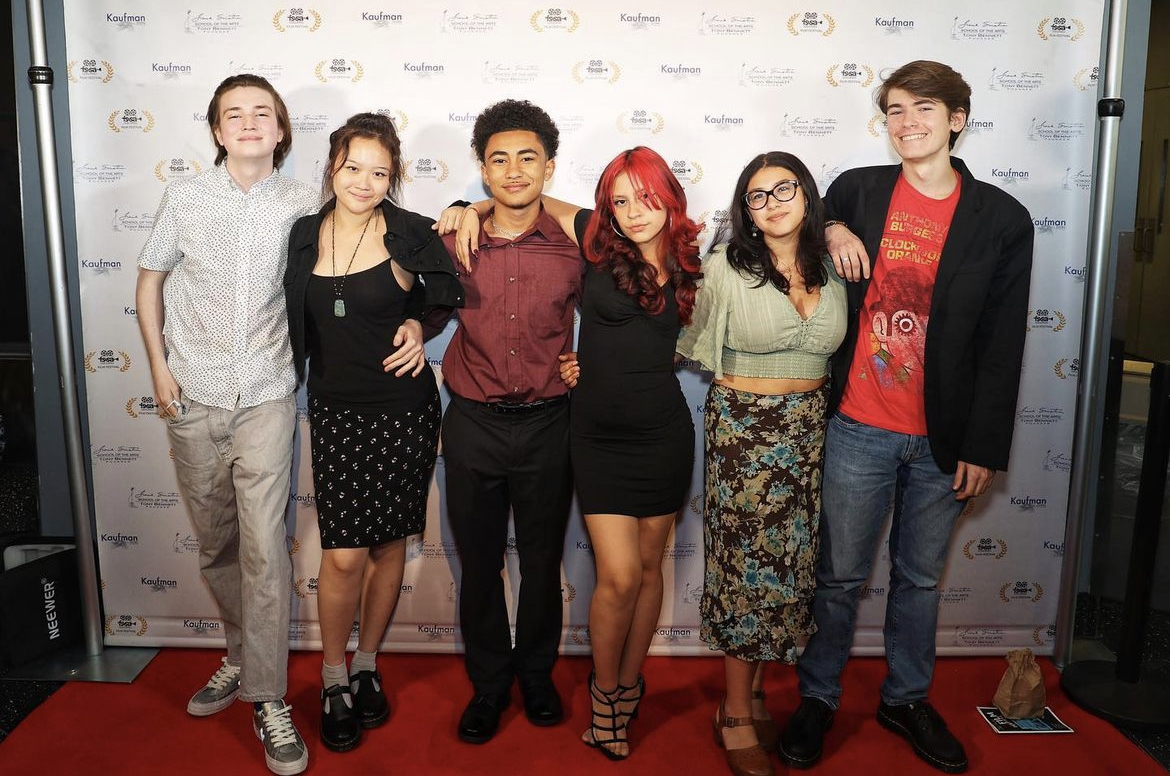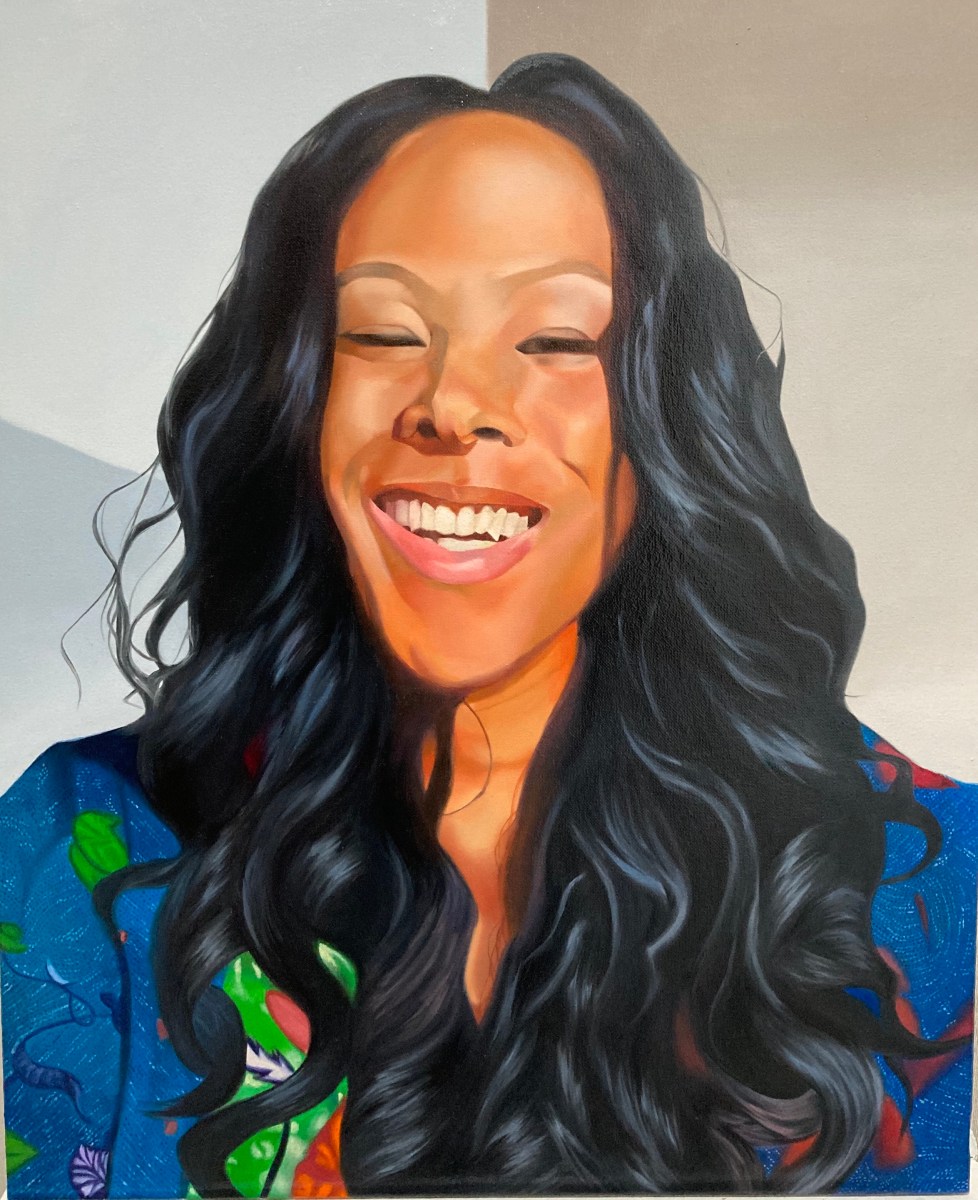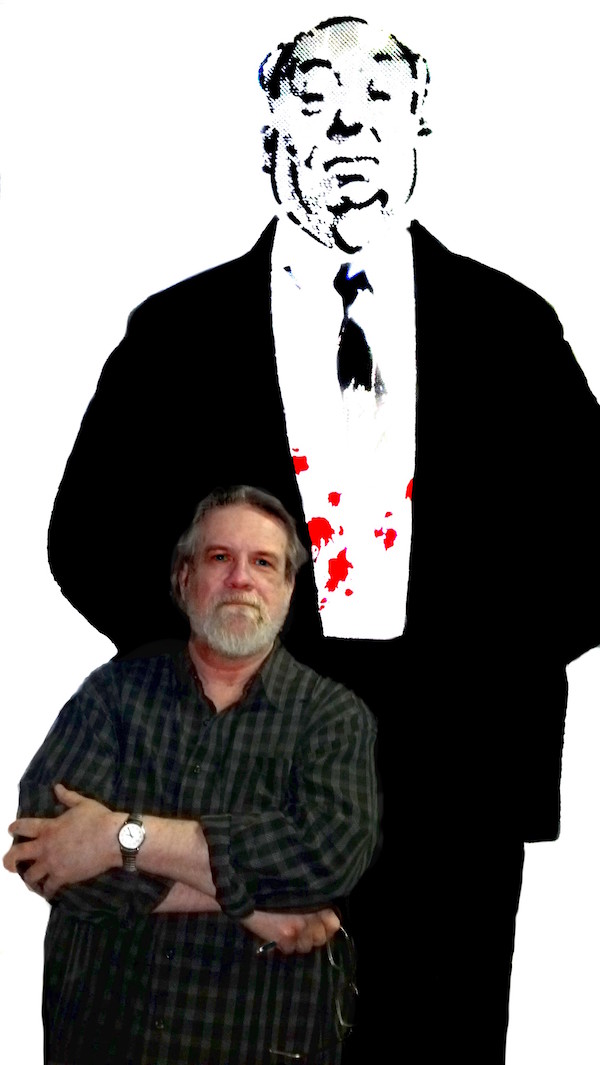
BY TRAV S.D. | Sometimes, the drive into the future involves a glance into the rearview mirror. For the past 14 years, Dan Bianchi, artistic director of Radiotheatre, has been presenting theatrical productions that mix state-of-the-art audio technology and one of the oldest art forms in the world: aural storytelling. Complex electronic sound design, which interweaves original musical scores and sound effects, supports live actors who read scripts that are designed to be listened to not as a nostalgic nod to the old time radio of the 1940s, but merely as an effective means of engaging an audience in imaginative narratives. Usually, Bianchi’s bailiwick is horror and science fiction. He’s presented adaptations of works by Edgar Allen Poe, H.P. Lovecraft and H.G. Wells, and has staged, five times, a version of the 1933 RKO classic “King Kong.” On Dec. 19 at St. John’s Lutheran Church, he unveils his latest: several adaptations of famous suspense films directed by Alfred Hitchcock.
Bianchi is a longtime Off-Off Broadway veteran, having done his first shows in New York as early as 1971. He’s won the Beckett Prize (twice) and even gotten to work with the man himself, Samuel Beckett, at the Sorbonne. In the ’80s, with his troupe the Threepenny Theatre Company, he produced an award-winning musical about grave robbers Burke and Hare, and put on an epic spook show called “Shock Theatre” that attracted the attention of Broadway producers. But over time, conditions altered.
“I used to produce large-scale shows with elaborate sets back in the ’80s,” said Bianchi, “but the economy got outrageous, and rents went up. Producers started doing shows that consisted of two people sitting around having conversations at a kitchen table or on a park bench. But I didn’t want to do that. I grew up with movies and have a background as a screenwriter. I see and think in cinematic terms: a raging river, an intergalactic war. A radio format allows me to do that.”
From the late 1920s through the late 1940s (roughly the two decades that preceded the advent of television), radio, including radio drama, was the reigning mode of home entertainment. Scripted radio shows were broadcast live from network studios, with actors reading their lines directly from scripts into microphones. In more recent decades, contemporary theatre groups have sometimes done campy recreations of the classic “Golden Age” radio productions, but according to Bianchi, his company has another approach.
“We’re not into the old-time radio shtick,” said Bianchi. “I’m uninterested in creating a museum piece of the 1940s with period outfits and hairdos. In those kinds of presentations the star is usually the foley [sound effects] artist, and it usually creates a comedic effect. With the kind of suspenseful, horrific content we try to do, that would ruin the effect we want.”
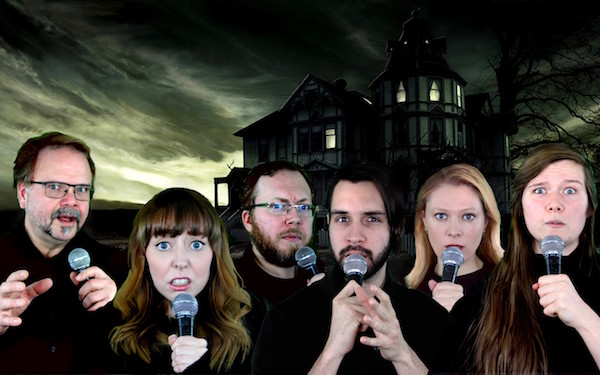
Instead of employing a foley person and live musicians, Bianchi and his collaborator, Wes Shippee, build complex tapestries of orchestrated music, peppered with recorded and synthesized sound effects, generated, mixed and amplified through the latest electronic equipment. Yet, despite all of this futuristic technology, his work also hearkens back to the most ancient human traditions.
“At Radiotheatre, we’re going back to the first theater… storytelling in the dark around a campfire,” noted Bianchi. “A narrator tells the tale as players act it out. This way we engage directly with the audience and they seem to like that. We entice their imaginations to work to supply the visuals. With traditional plays, TV or movies, [the audience] just sit back and see whatever the director gives them as he sees it… a beautiful girl, a monster, whatever. But with audio theater, if I say a beautiful girl walks into the room, I don’t need to elaborate. I get 180 versions of that in the minds of the audience.”
Bianchi normally adapts the scripts themselves from works of classic fiction, but on this occasion he found ready-made scripts from radio days that were in the public domain. Back in the day, it was common practice to present radio adaptations of first run films, both to promote the movies and as entertainment in their own right. The Hitchcock stories Radiotheatre will be presenting are “Strangers on a Train,” “Suspicion,” “The Birds,” “Shadow of a Doubt,” “Rebecca,” “The Lodger,” and “The 39 Steps.” Each performance will feature a different bill, as the scripts can be up to an hour long.
“Hitchcock is one of my favorites, and radio is the only way you can tell his stories in a theatre,” said Bianchi. “I’m hoping it’ll appeal to younger audiences as well as older ones. If you know movies, you pretty much know Hitchcock. He’s still a personality.”
Radiotheatre’s Alfred Hitchcock Festival plays Dec. 19-30, at St. John’s Lutheran Church (81 Christopher St., btw. Bleecker & W. Fourth Sts.). All shows at 8pm. Tickets are $24 general admission, $12 for students/seniors. For reservations, call 212-868-4444 or visit radiotheatrenyc.com (where you can also access the titles scheduled for each of the festival’s nine performances). Box office opens 30 minutes before showtime. Wheelchair accessible. Runtime: 80 minutes.











